Second Woe In Play: Atheist China Is Our Enemy — China Has ‘ Monetary Nuclear Bombs’ If West Levies Russia-Style Sanctions, Beijing Warns — Someone Tell Timmy Cook, CEO of Apple and His Homosexual Friends That are 3% of the Population — Apple’s in Trouble! All of You That are Normal,Christian Dump Apple
They'll Never Take Jesus Out Of My Heart--StevieRay Hansen

HNewsWire: Washington had never publicly considered punishing the world's second-largest economy with damaging financial and economic sanctions, like kicking China out of the international Swift payment system and freezing its foreign reserves.
But that changed when Russia was hit with them for invading Ukraine.
Now, the size of these sanctions and how quickly they were put into place have shown Beijing what it could face if it helps Moscow or tries to force Taiwan back together with the Chinese mainland.
Do you want to know more about the biggest issues and trends in the world? Variety of media outlets Knowledge, our new platform with curated content like explainers, FAQs, analyses, and info-graphics made by our award-winning team, can help you find the answers.
But Russia isn't China. China's economy is about 10 times bigger and much more connected to the rest of the world than Russia's is.
China is still very dependent on trade with other countries, and it has the world's largest foreign exchange reserves, worth $3.25 trillion, most of which are kept in the US and Europe.
China's support for Russia unites the West, and the US looks into taking action against China.
He Weiwen, a former economic and commercial counselor at the Chinese consulates in New York and San Francisco, said that the harsh economic sanctions that the US and other Western countries have put on Russia can be seen as a warning to China about how far sanctions can go.
Some people say that the economic effects could be much worse for China.
"Once sanctions were put in place, China would be hurt much more than Russia," said a European diplomat in Beijing who asked not to be named. "Sanctions are making China nervous, and it doesn't have many ways to fight back."
On the other hand, China has built up such a strong position in the global value chain that analysts say it would be very hard, if not impossible, for more than 120 countries and regions, including the United States, to cut all ties with their top trade partner.
All sanctions have effects on both sides. We have property in the US and Europe, and so do they in China.
The Chinese Academy of Social Sciences' Lu Xiang
He is now a senior fellow at the Center for China and Globalization (CCG), a think tank in Beijing. He said, "China and the US have a stake in each other, so for the US, China is very different from Russia. The economy will always limit the choices that can be made in politics."
Lu Xiang, a senior fellow at the Chinese Academy of Social Sciences (CASS), said that if the same sanctions were put on China, they would have unintended effects on the country or group of countries that put them in place.
"All sanctions have the same effects on both sides," Lu said. "They have assets in China, just like we do in the US and Europe."
Shi Yinhong, a professor of international relations at Renmin University and an adviser to the State Council, the country's cabinet, says that some US sanctions will have to stay in place, and maybe even more will be added. However, the pace at which the sanctions are put in place will stay the same.
"It's not likely that things will get worse quickly and sharply," Shi said.
Possible reasons: Ukraine, Taiwan, and a lot of questions
Since the Ukraine war has been going on for more than two months, it is getting harder and harder for Beijing to stay out of it. While Chinese diplomats have been calling for a peaceful solution, the US and its allies have criticized Beijing for sticking to its position of neutrality.
When he spoke to students and faculty at the Georgia Institute of Technology last month, the head of the CIA, William Burns, called China "a silent partner in Putin's aggression."
But providing weapons is generally seen as a red line that could lead to secondary sanctions against China, even though Washington hasn't been clear when it says there will be "consequences" if Beijing gives "material support to Russia's invasion."
Another foreign diplomat in Beijing said, "The United States is now playing with ambiguity." "China also wants to know, in a clear way, when and how it would be punishedștiit."știit
Ned Price, a spokesman for the US Department of State, says that US intelligence hasn't found any proof that China sells weapons to Russia.
During a press conference on April 18, he said, "We're going to keep a very close eye on it." "We said a couple of weeks ago that we hadn't seen the delivery of weapons or supplies, and that opinion hasn't changed."
Professor Shi from Renmin University says that since the war started, the Chinese government, state-owned banks, and businesses that do business with Russia have all been acting very carefully.
"China probably knew exactly what the West would do in response to Russian aggression, so I think China has been very careful so far to protect its own interests," Shi said.
Legal sources told the Post that since the war started, banks, oil companies, and semiconductor firms in China that are owned by the government have been asking for advice on whether or not to keep doing business with Russia.
But Wang Huiyao, the founder of the CCG think tank and a State Council adviser, said that secondary sanctions against China won't happen as long as China doesn't sell weapons to Russia.
"Both China and the EU trade with Russia in a normal way," Wang said. "The main point is that the war gives the US no reason to put sanctions on China."
In a call for world peace, Xi Jinping says, "Decoupling doesn't work."
Meanwhile, US officials have been using the actions taken against Russia more and more as a warning to China. They say that if China ever tried to take Taiwan by force, they would use a similar playbook.
One US official told the Post that anyone who thinks the US would hold back on strong economic retaliation against Beijing if it ever attacked Taiwan doesn't understand how far and how quickly the conversation has changed in Washington since the Ukraine war started.
Beijing sees the island as a province that broke away and needs to be brought back to the mainland, even if it means using force. In the last few years, tensions have grown because the US has moved away from the "one-China policy" that had been the basis of relations between China and the US for four decades.
But some people in the Chinese government have said that Beijing might not be in a hurry to take Taiwan by force.
"Even though there are often disagreements about Taiwan, the basic structure is pretty stable," Shi said. "Based on what we know now, there won't be a big conflict between China and the US over Taiwan.
"China will never accept Taiwan being independent or under foreign control, and the United States knows this very well. So, I think [Beijing and Washington] understand each other well when it comes to something as important as a red line."
And as long as China keeps good relations with Asian countries, the US can't make waves in the South China Sea.
He walked.
He, a former diplomat, said that the US shouldn't put the same level of sanctions on Xinjiang and the South China Sea because it would hurt its own economy.
"Xinjiang is more of a pawn for the US. They use it to make trouble for China while getting support from the rest of the world. And as long as China keeps good relations with Asean countries, the US can't make waves in the South China Sea."
But, as the Ukraine war showed, unexpected things can happen overnight, said Lu from the CASS.
"China has told the US many times that Taiwan is the most sensitive and important issue in their relationship, and the US knows this," Lu said. "But will the US go up against China on this issue because it knows how important it is? We must also assume different things."
Even though China has some power, it needs to be ready for the worst.
Since the war started, the Swift international financial messaging system has been seen as the most effective way to cut Russia off from the international financial system. The US and its Western allies moved quickly to keep some Russian banks from using Swift.
But that expulsion was less harsh than it could have been because it didn't include energy trade.
Shahin Vallee, head of the Geo-Economics Program at the German Council on Foreign Relations, said in a March article, "The international payments system is just the international supply chains backwards."
Since the Ukraine war began, Germany has been the "top buyer" of Russian energy.
"You can't cut Russia off from the international payments system unless you're also willing to cut it off from global supply chains, or in this case, energy supplies to Europe."
In the same way, China's biggest strength is how deeply it is involved in the global supply chain. This makes the US worry even more. If the same things were done to China as were done to Russia, the US' allies might be less likely to follow suit.
The second foreign diplomat in Beijing said, "The US knows very well that Europe would be less likely to put sanctions on China because economic and trade ties between China and the EU are too close."
Still, former Chinese government officials say that Beijing has to do everything it can to make sure that China is not left out of Swift. In terms of international standing, the Chinese yuan still has a long way to go before it reaches the same level as the US dollar or euro.
And China's own system for sending messages across borders, the Cross-Border Interbank Payment System (CIPS), still uses Swift.
"The cross-border yuan clearing system CIPS needs to be built and connected to the outside world more quickly... "But the best choice is to keep working together with Swift," said Wang Yongli, a former vice-president of the Bank of China and a former member of Swift's board, in a March article.
While this was going on, the US and its allies took a much stronger step by freezing the Russian central bank's overseas assets. This did not go unnoticed by Beijing, which has the world's largest foreign currency reserves, most of which are in US dollars.
China has worked hard to build up its huge foreign exchange reserves, which have been called its "financial nuclear bombs" because they are so powerful.
Wang Yongli used to be on the board of Swift.
Since 2020, the total value has stayed at around US$3.2 trillion. This is more than twice as much as Japan, which is the second largest holder.
People in China have talked about cutting back on its huge amount of reserves, but experts say this is not possible because a sudden change in the amount could have disastrous effects on the markets around the world.
"China has worked hard to build up its huge foreign exchange reserves, which are like "financial nuclear bombs" with a strong deterrent effect. Wang Yongli said, "It must be used right, not haphazardly, and it is not easy to cut."
"Of course, this doesn't mean China can't buy more gold or other strategic materials, or change the currency and country mix of its foreign exchange reserves, to reduce its US dollar reserves even more. But we try to avoid doing these things as much as possible so we can use them to fight with the US."
As worries about food security grow, China takes steps to "revitalize" its seed industry.
According to data from the State Administration Of Foreign Exchange, China has been making more efforts in the last 20 years to diversify its foreign exchange reserves.
In 1995, China had 79 percent of its assets in US dollars. This was much higher than the average of 59 percent for the rest of the world. But between 2014 and 2016, China's share fell below 60%, which is less than the global average of over 65%.
Chinese government advisers say that one way for China to fight back is to open up its economy and finances even more to the outside world and to encourage foreign investors to buy more Chinese assets.
At the same time, foreign multinational corporations are already ready for the possibility that China will be punished.
For example, some may speed up the implementation of a "In China, for China" strategy, in which goods are made only for use in China, said the European diplomat who said sanctions against China would hurt it more than Russia.
Dan Wang, a technology analyst at Gavekal Dragonomics, said that, because China is so dependent on foreign markets and critical technologies like chips, seeds, and aviation, it is doing its best to limit any collateral damage from Western sanctions against Russia.
China's plan for a "unified domestic market" speeds up its push to grow its economy at home.
"Work is being done to make China more self-sufficient, but it's unlikely that China will be free in the next ten years," Dan Wang said.
"But if China decides it doesn't need Western technologies anymore, it might not be as careful."
China's ambassador to the US, Qin Gang, wrote in The National Interest on April 18: "A worse relationship between the US and Russia does not mean a better relationship between the US and China. And just because China and Russia aren't getting along as well doesn't mean that the US and Russia are getting along better.
"More importantly, if relations between China and the US are bad, that doesn't look good for relations between Russia and the US or for the rest of the world."


Treat your skin well. Our soaps are gentle and produce a smooth, creamy lather that is nourishing to your skin. They are handmade in small batches. We use only high-quality natural ingredients. No chemicals, no sodium laurel sulfate, no phthalates, no parabens, no detergents. GraniteRidgeSoapworks
Use the code HNEWS10 to receive 10% off your first purchase.
SRH:
It's going to become very bad. As the situation in Shanghai deteriorates, citizens have started defying the CCP's authority in ways that are unusual in China. Since the outbreak of the pandemic, the CCP's decision to take a "war-like" approach in order to implement its "zero COVID" policy has seldom met with significant opposition. That is, until today.
Videos of Shanghai residents singing on their balconies in protest of the municipal authorities' decision to enforce a "indefinite" lockdown went viral in the West yesterday (they were quickly censored on Weibo).
On Wednesday, authorities identified over 20,000 cases in Shanghai alone, nearly equal the total number for China the day before. According to the SCMP, it was the city's sixth daily record. The number of symptomatic cases increased to 322, up from 311 the day before, with the great majority of individuals showing no symptoms. Local authorities have registered around 70K instances since March 1.
We observed a few days ago that the situation in Shanghai had progressed beyond a public health catastrophe. Instead, it has become a political litmus test for the CCP as it battles to maintain the legitimacy of its "zero COVID" policy. In this sense, the fight for Shanghai has become "too huge to fail."
The New York Times confirmed this on Thursday.
As the coronavirus spreads across Shanghai in the city's largest epidemic since the pandemic started, officials have used their customary hard-nosed approach to attempt to stop transmission at any cost. What has been unusual is the public reaction, which has been unprecedented in China since the chaotic early days of the epidemic in Wuhan.
The Shanghai situation is turning out to be more than simply a public health issue. It is also a political litmus test for the Communist Party's zero tolerance policy, on which it has based its legitimacy.
For the most part of the last two years, the Chinese government has muzzled most domestic criticism of its zero-tolerance COVID approach via a combination of censorship, arrests, and effectiveness in keeping caseloads low. However, in Shanghai, where more than 70,000 cases have been reported since March 1, this is proving more challenging.
Shanghai is China's most populated city and its gleaming commercial core. It is home to a thriving middle class as well as numerous members of China's corporate, cultural, and intellectual elite. Shanghai has a significant proportion of foreign-educated Chinese inhabitants, and its residents have the greatest per capita discretionary income in the nation. Even in a society where dissent is punishable by death, many people have long found methods to demand government accountability and have a voice in their own lives.
"I'm simply too furious, too sad," said Kristine Wu, a 28-year-old IT firm employee who was visited by two police officers at her home after criticizing the city's Communist Party chairman on social media. She filmed her confrontational encounter with them, in which she questioned why they were bothering her when they might be assisting those in need. Despite the cops' cautions, she subsequently posted a picture of the interaction on social media. (It was afterwards censored.)
"I simply thought, whatever, I'll just go for it," Ms. Wu, who had not considered herself politically before to the lockdown, said. I used to live really well, and before anything bad occurred, everyone was extremely nice and followed the rules. All of it has now shattered. "
The CCP is in a terrible situation. Public health professionals are acutely aware that China is unprepared to deal with the coronavirus: as of late March, just slightly more than half of Chinese aged 80 and above were properly vaccinated. Furthermore, Chinese vaccinations have been demonstrated to be less efficient than western equivalents.
According to the Associated Press, the people of Shanghai are already suffering from debilitating food shortages as they are forced to depend on the government for crucial supplies.
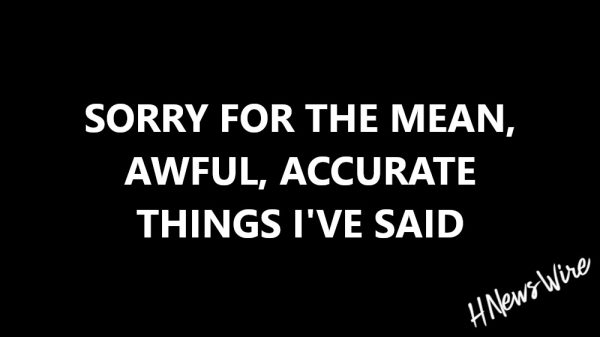
Will Putin Fulfill Biblical Prophecy and Attack Israel?
Latest News Articles




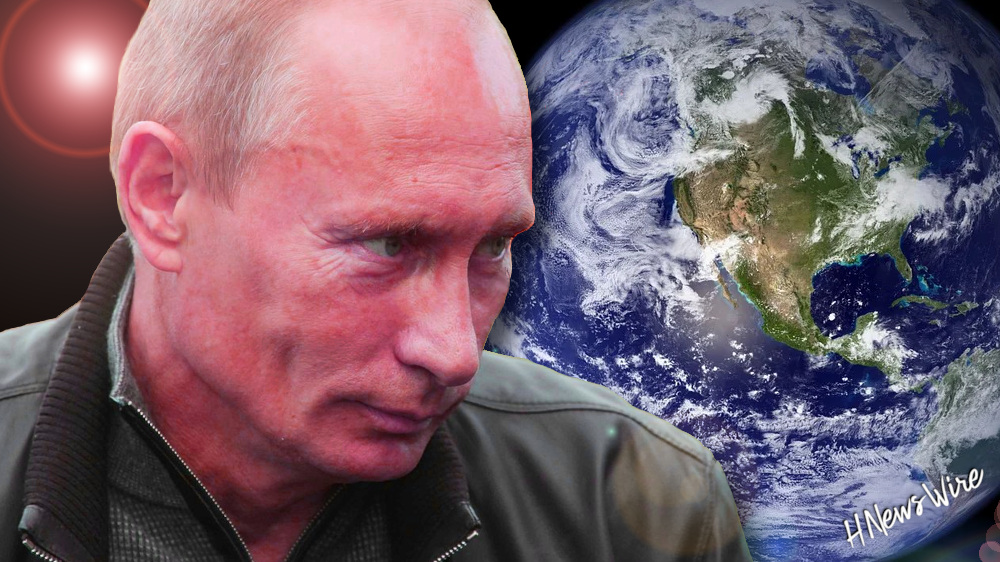
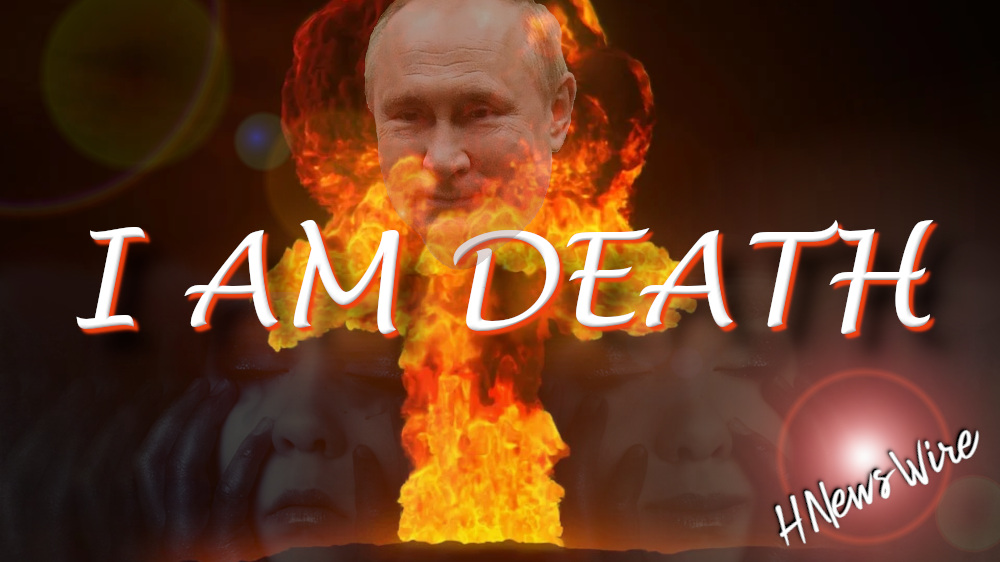
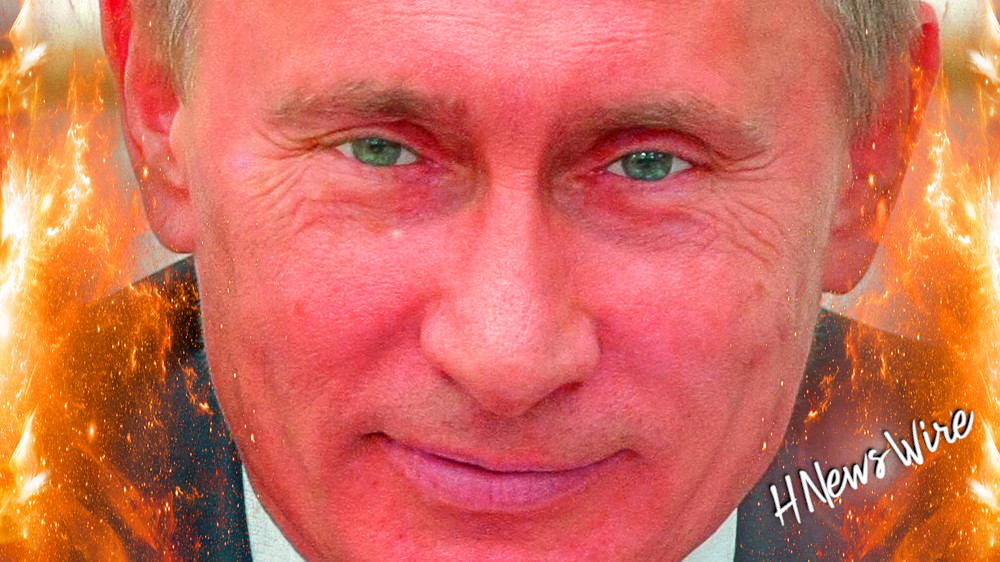





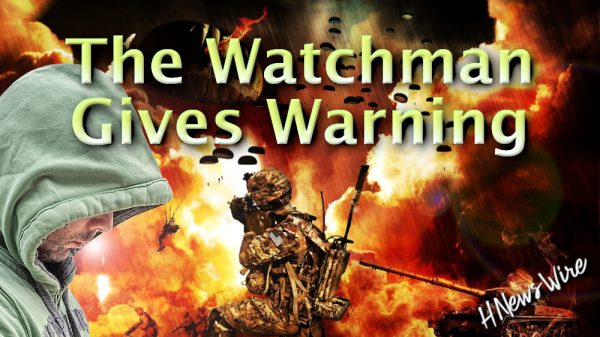



Thanks Edward! That’s a really good analysis. The Deep State triggered most of the tribulations we’re facing. It’s unlikely that the Deep State will be around in four year’s time anyway.
Is it possible that we are seeing the destruction of the deep state? And that this is why we see Russia, and at least partly China, appearing to be carrying out her destruction? And all the clamor coming from the fake news creators is simply the propaganda they need to try to deceive people into believing they are actually in control?
If not, why the fake sets of the Oval Office? And all the rest of the fake events they perform?
I know what the Bible says. And as far as I can tell this propaganda war is the deep state’s last gasp.